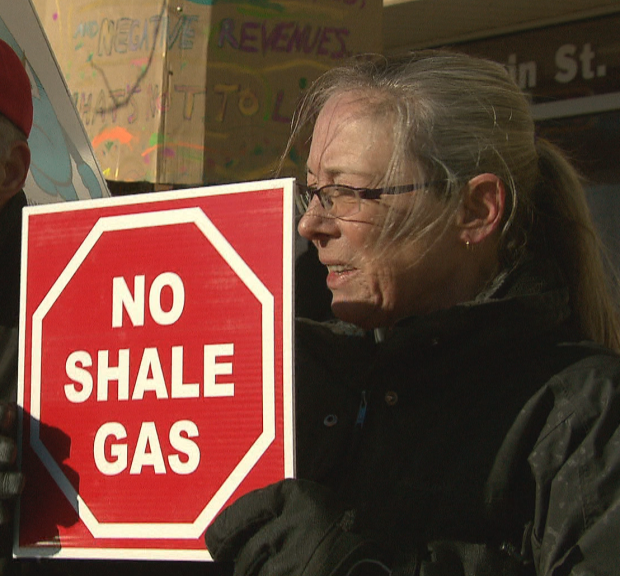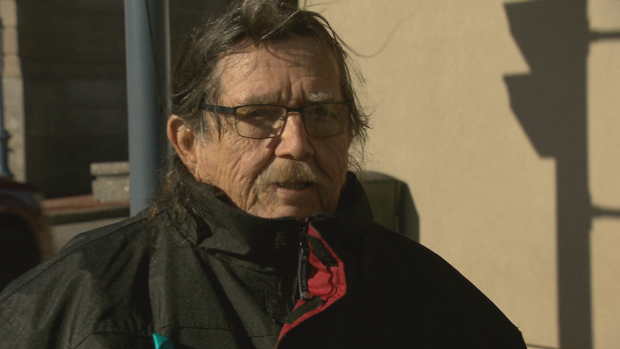'Break out the signs': Shale gas foes take to the streets again
About two dozen anti-shale gas protesters waved signs to the beat of a drum on Thursday outside a Moncton hotel, site of a meeting to discuss natural gas supplies in the Maritimes.
The Progressive Conservatives, who took charge in the province last Friday, have said efforts will be made to lift a ban on fracking by the end of the year in communities that are open to shale gas.
But on Main Street on Thursday, protesters said any fracking in New Brunswick is too close to home.
"We all share the same aquifer," Pamela Ross, chair of the Council of Canadians chapter in Moncton, said as she carried a "No shale gas" protest sign.
Hopefully, this will be the last time that I have to do this kind of protest. - Kenneth Francis, Kopit Lodge
Protesters are watching every move of the new government to see how far the reopened issue of fracking will go, Ross said.
"This is just a small showing for now, if push comes to shove, when it comes down to it, we'll be back on the highway, whether it's in Penobsquis or Kent County or anywhere else in this province, people are against it."
Ross said many of the dozens of signs used in the protest are from 2013, when protesters gathered in Rexton to rally against SWN Resources, a shale gas exploration company.

A camp was erected by protesters from the surrounding communities, including nearby Elsipogtog First Nation. The protest ended in October 2013 after a clash that saw five police cars burned and 40 people arrested.
Kenneth Francis was there during the protests of 2013, and he travelled to Moncton from his Elsipogtog home to protest again on Thursday. Francis represents Kopit Lodge, a grassroots Mi'kmaq water preservation and wildlife conservation group based in Elsipogtog.
"Hopefully, this will be the last time that I have to do this kind of protest, because when SWN left, we started to organize but to fight in the boardrooms, and if not in the boardrooms, in the courtroom.
"We don't want to see a repeat of the craziness that happened."
Francis said the First Nation has filed an aboriginal title claim in court.
Inside the hotel and in the conference room, Ray Ritcey, CEO of the Maritime Energy Association, said he respects the rights of protesters but fracking operations in New Brunswick are not a topic of discussion at the meeting.
"We're really trying to find short, mid-term solutions to a gas supply gap that exists today and is only going to increase by Dec. 31 of this year."

Because of dwindling supply, offshore drilling near Sable Island is expected to wrap up by the end of the year, he said.
Ritcey said he's in favour of lifting the moratorium in New Brunswick, but it would be a long-term solution to bolster natural gas supplies.
When the former Liberal government imposed the moratorium, it said five conditions had to be met before it was lifted: a community approval to extract shale gas; reliable data on health, environmental and water impacts; a plan to dispose of wastewater; proper Indigenous consultations, and a proper structure for the province to collect royalty payments.
Francis said proper consultations have not been done with indigenous communities, adding, "They have no consent from First Nations."

